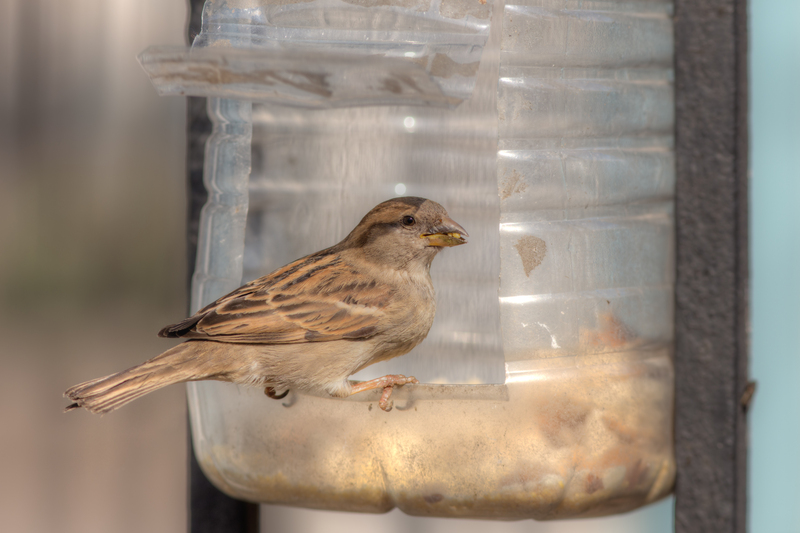Teaching Kids Recycling: Fun and Effective Strategies
In a world increasingly aware of environmental concerns, instilling the value of recycling in children is more important than ever. When kids learn to recycle early, they not only contribute positively to their communities, but also develop a lifetime habit of responsibility towards the planet. Wondering how to inspire your children to become eco-friendly citizens? Read on for comprehensive, actionable, and engaging strategies for teaching kids about recycling through fun and effective activities.

Why Teaching Kids Recycling Matters
With landfills filling up and plastic pollution threatening ecosystems, recycling education isn't just a trendy topic--it's a crucial life skill. When children understand recycling, they:
- Develop environmental awareness and responsibility
- Form positive habits early
- Influence friends and family by sharing what they've learned
- Contribute to cleaner, greener communities
- Become empowered to make mindful choices as consumers
Teaching recycling to kids helps build the foundation for a sustainable future. So how can parents and educators make recycling concepts accessible and memorable?
Fun and Effective Strategies for Recycling Education for Children
1. Model Recycling Behavior at Home
The best recycling lessons start at home. Parents and guardians can show children how to separate recyclables such as paper, plastic, and glass. Use clear, labeled bins and encourage kids to help sort everyday items. Children mimic the adults around them--so let them see you recycling with enthusiasm!
- Tip: Make sorting easy with color-coded bins or fun stickers.
- Let kids take turns being in charge of the recycling bin each week!
2. Turn Recycling Into a Game
Learning through play is effective, especially for younger children. Transform recycling into a fun challenge or competition. Try these engaging recycling games:
- Recycling Relay: Time children as they sort different types of waste into the correct bins. Add an educational element by asking questions about the items as they go.
- Bin Basketball: Set up bins a few feet away and let kids toss recyclables like paper balls or empty cans into the right bin. Award points for accuracy!
- Sorting Race: Mix up various items and see how quickly kids can separate them into recyclable and non-recyclable groups.
Making recycling an enjoyable activity helps solidify the habit and keeps kids excited about making a difference.
3. Creative Reuse and Upcycling Projects
Teach children that recycling isn't only about putting items in the right bin--it's about giving used objects a new life. Host creative upcycling sessions at home or in the classroom where kids repurpose materials such as cardboard, plastic bottles, and glass jars into art, toys, or practical household items.
- DIY Plant Pots: Paint and decorate used plastic bottles or yogurt cups to grow small plants or herbs.
- Homemade Bird Feeders: Transform milk cartons or toilet paper rolls into bird feeders for the backyard.
- Recycled Art: Use bottle caps, magazines, and scrap fabric to create colorful mosaics or collages.
Kids gain a sense of accomplishment and creativity while learning the importance of reducing waste through reusing materials.
4. Educational Storybooks and Videos
Age-appropriate books and videos are powerful tools for teaching kids about recycling. There are plenty of children's picture books that explore environmental themes in an accessible way, introducing concepts such as waste reduction and the recycling process.
- Book Suggestions:
- *Why Should I Recycle?* by Jen Green
- *The Adventures of a Plastic Bottle* by Alison Inches
- *Michael Recycle* by Ellie Bethel
- Video Resources:
- Short animated videos on YouTube explaining the journey of recyclables
- Documentaries for older children about how recycling helps wildlife and communities
Discussion after reading or watching helps reinforce learning and encourages curiosity.
5. Go on a Recycling Field Trip
Organize a visit to a local recycling center, landfill, or community clean-up event. Seeing the real-life impact of recycling (or the consequences of littering and waste) can be powerful for children.
- Many recycling centers offer guided tours that explain the recycling process step-by-step.
- Community clean-up days allow kids to participate in hands-on environmental stewardship.
- Document the field trip with photos or drawings, then discuss what everyone learned back at home or school.
Experiential learning makes recycling concepts more tangible and memorable.
6. Integrate Recycling Education Into School Curriculum
Many schools now include environmental topics in their science and social studies programs. Teachers can further embrace recycling education by:
- Hosting recycling challenges or competitions between classrooms
- Starting a campus composting or recycling club
- Inviting environmental experts for workshops and presentations
- Collaborating on upcycling projects for school fairs or art exhibits
Engaging students school-wide helps normalize good waste management habits and creates a supportive community around recycling.
7. Use Technology and Recycling Apps for Interactive Learning
Leverage educational technology to make recycling exciting for digitally-savvy kids. Many free or inexpensive apps and games teach recycling concepts in entertaining ways.
- Recycling Hero: A game that teaches children how to sort waste and learn about recycling best practices.
- Bin It!: An interactive game scored based on how well kids sort waste materials.
- Eco Kids Planet: An app and magazine that explore broader environmental topics, including recycling tips for children.
Combining screens with hands-on practice ensures recycling education sticks.
8. Theme-Based Recycling Activities
Tie recycling lessons to holidays or events. For example:
- Make Halloween costumes from recycled materials
- Design Christmas decorations using used paper and cardboard
- Host a zero-waste birthday party with recyclable plates and utensils
When recycling becomes part of celebrations, it feels less like a chore and more like a meaningful family tradition.
9. Reward Progress and Build Motivation
Celebrate children's efforts in recycling by creating reward charts or offering small incentives for consistent recycling behavior. Recognize milestones such as "Recycling Star of the Week" or award eco-badges for mastering new green skills.
- Positive reinforcement nurtures pride and the desire to keep going.
- Publicly praise kids for their efforts at home, in class, or during community events.
Key Concepts to Teach Kids About Recycling
What Can Be Recycled?
Understanding what materials are recyclable is a key part of recycling education for children. Teach them to look for recycling symbols on packaging and explain that rules can vary by community.
- Papers: Newspapers, magazines, office paper
- Plastics: Bottles, containers (typically #1 and #2 plastics)
- Glass: Jars, bottles (ensure they're clean and lids off)
- Metals: Aluminum cans, tin cans
Explain why clean, uncontaminated recyclables are important for producing useful materials.
The Reduce, Reuse, Recycle Hierarchy
The famous 'Three Rs' provide a simple framework for kids:
- Reduce: Using fewer disposable products to create less waste.
- Reuse: Finding new uses for old items instead of throwing them away.
- Recycle: Processing materials so they can be remade into new products.
Help kids brainstorm ways they can follow the Three Rs in daily life--from packing waste-free lunches to donating old toys.
Composting--A Special Kind of Recycling
Food and yard waste can be composted instead of sent to landfill. Teach kids to separate banana peels, apple cores, and leaves for a backyard compost bin or city composting service. Watching scraps turn into rich soil is magical and deeply educational!
Frequently Asked Questions About Recycling Education for Children
At what age should children start learning about recycling?
Recycling education can begin as early as preschool, with simple sorting activities. Even toddlers can help put paper in one bin and plastic in another. As children grow, gradually introduce detailed concepts such as which plastics can be recycled or why recycling matters for wildlife and climate.
How do I explain where recyclables go?
Use books, videos, or visits to local recycling plants to show that recycled materials are cleaned, processed, and made into new products. Kids love learning that their old milk jug could become part of a park bench or a new toy!
What if our neighborhood doesn't have a recycling program?
Get creative! Reuse and upcycle as much as possible. Some local businesses may accept certain recyclables (like plastic bags or batteries), and you can teach kids about the importance of reducing waste in all forms.

Inspiring Kids to Be Recycling Champions
Empowering the next generation with an understanding of recycling sets them up to be thoughtful, eco-conscious citizens for life. From creative games to real-world adventures, there are endless ways to make recycling fun for kids. By modeling green behavior, celebrating successes, and providing plenty of hands-on opportunities, you'll help develop eco heroes ready to protect our planet for years to come.
Conclusion: Planting the Seeds of Sustainability
Teaching kids recycling isn't just a responsibility; it's a gift we give both to them and to the world. By using fun, effective strategies--from interactive games to creative upcycling and field trips--we can nurture a generation passionate about waste reduction and environmental care. Start small, be patient, and remember: when eco-friendly habits are learned in childhood, they last a lifetime!
If you're looking for more activities and creative recycling ideas for children, bookmark this guide and share it with teachers, parents, and friends. Together, we can help raise a generation of recycling champions!